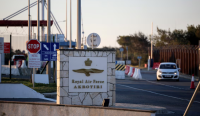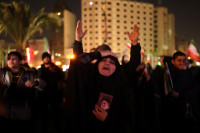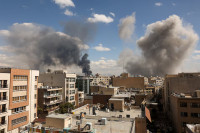World
Putin says Europe is needed in Ukraine talks, but suggests deal still distant
Putin told Russian state television that Trump was approaching the Russia-Ukraine conflict rationally and not emotionally, but gave the impression it might not end as soon as Trump would like.
Reuters
Europe’s participation in Ukraine peace talks will be needed eventually but Moscow first wants to build trust with Washington, President Vladimir Putin said on Monday, while suggesting that a deal to end the conflict may still be far off.
As Ukraine marked the third anniversary on Monday of Russia’s invasion that has killed thousands of civilians and displaced millions, US President Donald Trump suggested the war could end within weeks. But he did not elaborate.
Putin told Russian state television that Trump was approaching the Russia-Ukraine conflict rationally and not emotionally, but gave the impression it might not end as soon as Trump would like.
Both his telephone conversation with Trump and recent talks between the United States and Russia in Riyadh touched on the issue of resolution of the conflict in Ukraine, Putin added.
“But it was not discussed in detail,” he said in an interview. “We only agreed that we would move toward this. And in this case, of course, we are not refusing the participation of European countries.”
Ukraine and Kyiv’s European allies both objected to not having been invited to the initial round of talks on Ukraine, held last week in Saudi Arabia by the United States and Russia.
Putin said Europe had “nothing with” the talks in Riyadh, as they were focused on establishing trust between Moscow and Washington, which he said was key.
“In order to resolve complex and rather acute issues, such as related to Ukraine, both Russia and the United States must take the first step,” Putin said.
“What does it consist of? This first step should be devoted to increasing the level of trust between the two states,” he added.
“But what do the Europeans have to do with it?”
The next few rounds of talks and high-level contacts will be devoted to building that trust, he said, but once the talks turn to reaching a settlement to the conflict, the presence of European partners will be logical.
“Their participation in the negotiating process is needed. We never rejected that, we held constant discussions with them.”
Michael Froman, president of the US Council on Foreign Relations thinktank, said it would be a mistake for a ceasefire deal to come at the cost of the transatlantic alliance.
“To secure peace through strength, it would be in Trump’s interest to work in tandem with our European partners, who will bear the burden of Ukraine's financial and economic survival,” he wrote in a note last week.
Halving Defence Budgets
Putin also said he approved a suggestion that Russia and the United States could discuss deep cuts, of as much as half, in military spending.
“We could come to an agreement with the United States. We’re not against that,” Putin said. “The idea seems like a good one to me. The United States reduces theirs by 50 percent and we reduce ours by 50 percent. And China could join us later if it wishes.”
Putin dismissed any notion that Trump’s sharp alteration of Washington’s policy on Ukraine, including criticism of Ukrainian President Volodymyr Zelenskiy and suggestions that Kyiv might not recover all lost territory, was based on emotion.
Trump, he said, was acting logically and free of the constraints of promises to Ukraine made by European leaders.
“Unlike them, the new president of the United States has his hands free from shackles that don’t allow you to move forward,” he said.
“He is moving in a straightforward manner and without particular constraints. He is in a unique position: he doesn’t just say what he thinks, he says what he wants. This is the privilege of the leader of one of the major powers.”




 9.7°C Kathmandu
9.7°C Kathmandu














